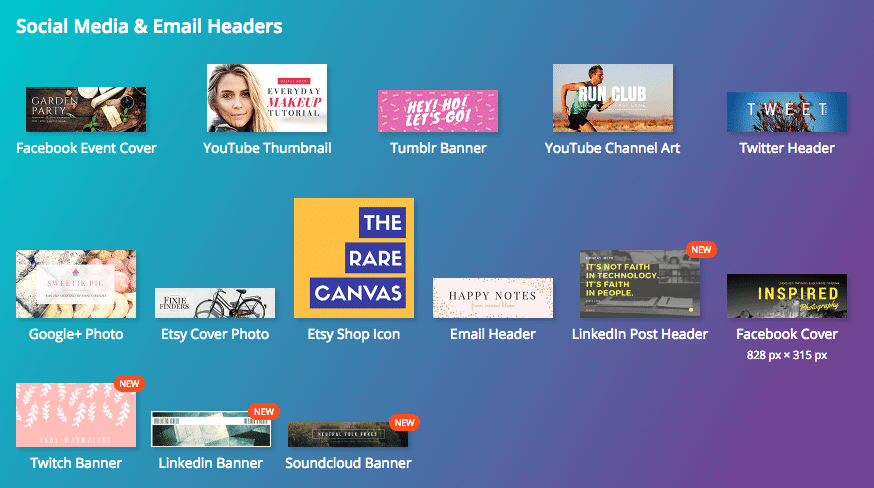이 글에서는 훌륭하고 선별된 콘텐츠를 만드는 방법을 알아봅니다. 귀하는 다음 상황 중 하나에 처해 있을 수 있습니다.
- 한 마케팅 담당자가 자신의 목록 기사가 입소문을 타도록 하려고 노력해 왔습니다.
- 전자상거래의 부상 에 관한 새 기사에 대해 눈길을 끄는 비클릭베이성 제목을 만들려고 노력하고 있으며 검색 엔진에 최적화되기를 희망합니다.
- 한 블로거가 새로운 블로그 게시물 아이디어를 찾고 있습니다.
- 한 소셜 미디어 관리자가 수로 인해 어려움을 겪고 있습니다 .
그들은 모두 같은 영역에서 사물을 찾고 있지만, 어디를 봐야 할지 모릅니다.
아이디어 생성부터 트렌디한 뉴스 조사까지, 피상적인 키워드 조사부터 문법 검사까지, 인포그래픽 생성기부터 그래프 작성까지 모든 것을 처리하는 스마트 콘텐츠 편집 도구가 이들을 구출해 드립니다.
콘텐츠에 대한 필요성을 생각하면 인터넷에 해결책이 있습니다.
빌 게이츠는 1996년에 다음과 같이 말했습니다 . “콘텐츠는 인터넷에서 많은 실제 돈이 벌어질 것으로 기대하는 곳입니다..” 이는 수년 동안 옳았으며 앞으로도 수년 동안 여전히 진실일 것입니다. 그러나 이는 모든 게시자, 특히 이제 막 사업을 시작한 신규 블로거에게는 적용되지 않습니다.
목차
1. 첫째, 콘텐츠에 대한 냉엄한 진실
매일 나타나는 모든 새로운 블로그, Youtube에 매일 업로드되는 수천 개의 녹음 파일, Facebook, Linkedin, Twitter 및 기타 모든 소셜 네트워크에 게시되는 모든 새로운 메시지에 대해 생각해 보십시오. 요즘에는 누구나 아주 적은 비용으로 콘텐츠를 만들고 빠르게 게시할 수 있습니다.
그러나 양질의 콘텐츠에 대해 이야기하면 상황이 조금 달라집니다. 훌륭한 콘텐츠를 제작하고 적절한 청중에게 홍보하려면 시간과 비용이 필요합니다. 당신이 작은 틈새 시장에 있다면 경쟁이 치열하지 않습니다. 양질의 콘텐츠를 만들면 경쟁에서 우위를 점할 수 있습니다.
금융 , 디지털 마케팅 등 이미 확고한 퍼블리셔가 많이 있는 혼잡한 틈새 시장에서는 경쟁이 매우 치열하고 경쟁업체가 고품질의 연구된 콘텐츠에 많은 투자를 하고 있기 때문입니다.
어느 정도 성공할 수도 있지만 콘텐츠와 마케팅에 수천 달러를 투자할 준비가 되어 있지 않으면 전반적으로 이 게임에서 승리할 수 없습니다. 또한 이러한 경쟁업체의 대부분은 귀하의 틈새시장에 있는 권위 있는 웹사이트이므로 해당 콘텐츠가 검색 엔진에서 더 높게 표시된다는 점을 명심하세요.
당신은 무엇을 할 수 있나요?
콘텐츠 큐레이팅에 집중하세요.
2. 큐레이트된 콘텐츠가 새로운 왕이 되었습니다
마케팅 담당자들이 항상 “콘텐츠가 왕이다”라고 외치던 시절이 있었습니다. 글쓰기 서비스에 대한 수요가 기하급수적으로 증가했으며 글쓰기, 편집 및 교정 서비스를 즐겁게 제공하는 최고의 서비스 중 하나가 WriteMyPaper.Today . 만트라 덕분에 시대가 변하고 있습니다. 선별된 콘텐츠는 마케팅 세계에 진출하여 전 세계를 폭풍으로 몰아넣었습니다.
선별된 콘텐츠는 수요에 따라 특정 청중을 위해 작성된 일련의 기사 또는 블로그 게시물에 지나지 않습니다. 예를 들어, 위에서 언급한 영화 블로그의 예를 생각해 보세요.
해당 블로그의 독자 대부분이 공상 과학 소설을 좋아한다면 블로거가 공상 과학 영화에 대해 글을 쓰고 매주 게시되는 엄선된 기사 목록을 만드는 것이 현명할 것입니다. 더 많은 방문객들이 읽을 수 있도록 주말에 출판해 보는 것은 어떨까요?
또 다른 기술: 전문가 검거 는 블로거가 전문가와 전문가의 의견을 바탕으로 기사를 작성하는 활동입니다. 영화 블로거의 경우 전문가 정리는 Netflix가 물결을 일으키고 있는 현대 세계에서 영화의 지위에 대한 생각을 공유하는 인디 영화 제작자에 관한 것일 수 있습니다.
여기서는 지금까지 8,000명이 넘는 고유 방문자, 29개가 넘는 리트윗, 600개가 넘는 소셜 공유를 얻었으며 계속 집계되고 있는 SEO 관련 전문가 요약을 확인할 수 있습니다.
귀하의 웹사이트에 트래픽이 넘쳐 귀하의 브랜드 권위가 급상승할 훌륭한 전문가 검거를 구성하는 데 도움이 필요하다면 당사의 전문가 검거 생성 서비스를 .
온라인 연구에 따르면 선별된 블로그 게시물은 독자가 보고 있는 것과 정확히 같기 때문에 틈새 블로그에 큰 영향을 미칩니다.
마케터, 블로거, 카피라이터를 위한 최고의 콘텐츠 도구
모든 콘텐츠는 염두에 두고 있는 주제로 시작되어야 합니다. 자신을 위해 글을 쓰는 것이 아니라 청중을 위해 글을 쓴다는 점을 명심하세요. 청중이 원하는 것이 무엇인지 알아내려면 트렌드를 확인하고 현재 무엇이 뜨거운지 확인해야 합니다.
#1 – 구글 트렌드
Google 트렌드를 사용하지 않는 마케팅 담당자는 많은 것을 놓치고 있습니다. 단일 플랫폼에서 전 세계에서 일어나고 있는 모든 사건과 시사 문제에 대한 많은 통찰력을 얻을 수 있는 이 천재적인 Google 애플리케이션을 사용하면 마케팅 담당자가 더 쉽게 아이디어를 찾고 뜨거운 순간에 집중할 수 있습니다.
이는 바이럴 콘텐츠를 제작하려는 사람들에게 정말 도움이 됩니다. 바이럴 콘텐츠 마케팅의 중요한 요소 중 하나는 트렌디한 주제를 선택하여 소셜 및 주류 미디어의 사람들이 클릭하고, 좋아요를 누르고, 공유하도록 만드는 것입니다.
#2 – FAQ폭스
이제 추세를 확인하고 관심 분야 중 하나를 선택했으므로 사람들이 답을 찾고 있는 몇 가지 질문을 찾을 차례입니다. 이를 위해 우리는 FAQFox를 사용하고 있습니다.
FAQFox 키워드 조사 도구가 아니며 실제 사용자 문제나 쿼리를 이해하는 데 좋습니다. 실제로 살펴보겠습니다.
이 도구를 사용하면 키워드로 검색한 다음 선택한 카테고리에 따라 스크랩할 여러 포럼 사이트를 자동으로 채울 수 있습니다.
한 눈에 잠재적인 키워드 기회를 찾는 데 도움이 되는 몇 가지 좋은 스레드를 더 볼 수 있습니다(완전히 관련이 없는 스레드 몇 개 중에서). 이 적은 양의 연구를 통해 돈 버는 것이 청중들 사이에서 인기 있는 주제라는 것이 분명해졌습니다.
#3 – Uber 제안
UberSuggest를 추가 부담이 없는 Google의 키워드 플래너로 생각해보세요 사용자는 관심 있는 단일 키워드를 입력하기만 하면 소프트웨어가 관련 키워드 목록을 생성합니다 .
경쟁도 없고, 검색량도 없고, 추가 데이터도 없습니다. 기사 작업에 필요한 키워드 제안만 있으면 됩니다.
UberSuggest를 사용하여 HubSpot 생성기에서 5개의 주제를 얻는다면 이는 끝이 없는 목록입니다.
#4 – HubSpot 블로그 주제 생성기
좋습니다. 이제 우리 기사의 인기 주제와 기사에서 답변할 질문 또는 그 이상을 얻었습니다. 이제 사람들의 관심을 끌 수 있는 훌륭한 헤드라인을 만들어야 할 때입니다.
멋진 블로그 주제를 찾는 데 어려움을 겪고 있는 사람들을 위해 특별히 제작된 HubSpot의 동적 블로그 주제 생성기는 귀하가 제출하는 명사 3개마다 훌륭한 주제 5개를 생성합니다.
예를 들어, 디지털 마케팅 트렌드에 대한 콘텐츠를 만들려는 블로거는 이 세 단어를 HubSpot 생성기에 제출하고 그 대가로 다섯 개의 블로그 주제 아이디어를 받게 됩니다.
5개 중에서 가장 좋은 것은 "경쟁업체가 트렌드에 대해 가르쳐 줄 수 있는 10가지"입니다. 블로거는 제안된 주제 중 하나를 다루거나 다른 단어를 시도할 수 있습니다. 무한한 가능성이 있습니다.
#6 – 헤밍웨이 앱
많은 마케팅 담당자가 Grammarly , 문법뿐만 아니라 구문, 가독성 및 부사도 관리하는 더 나은 웹 앱이 있습니다.
편집해야 하는 텍스트를 복사하기만 하면 앱에서 부사, 형용사, 가독성 점수, 복잡한 문장 사용 등 완전한 보고서를 제공합니다. 콘텐츠 마케팅은 단순성에 관한 것이므로 이 앱은 필수품입니다.
#5- 칸바
텍스트 기반 콘텐츠가 2000년대 느낌이라면 이미지, 인포그래픽, 동영상도 시도해 볼 수 있다. 그리고 그래픽을 만드는 데 사용할 수 있는 최고의 무료 소프트웨어는 Canva . 무료 템플릿을 사용하여 WordPress 블로그 및 기사용 추천 이미지를 만들고 Facebook 캐러셀용 이미지를 만드세요.
Canva를 사용하면 그래픽 디자이너가 아닌 사람도 멋진 마케팅 그래픽을 더 쉽게 디자인할 수 있습니다.
Canva를 사용하면 프리미엄 사용자로 전환될 가능성이 매우 높습니다. 더 많은 디자인 컬렉션, 템플릿 및 확장된 기능.
#7 – 헤드라인 분석기
완벽한 헤드라인을 찾는 SEO 전문가는 이 사이트에 가서 헤드라인을 제출하고 자세한 보고서를 받게 됩니다. 글자 수 제한, 유발 단어, 효율성 등 SEO 전문가가 헤드라인에서 원하는 모든 것을 처리합니다.
블로거를 위한 몇 가지 필수 사항
콘텐츠 도구 외에도 블로거와 마케팅 담당자가 "게시" 버튼을 누르기 전에 고려해야 할 더 많은 요소가 있습니다. 어떤 사람은 시장에서 가장 좋은 도구를 모두 사용해 봤지만 여전히 콘텐츠를 적절하게 마케팅하는 데 어려움을 겪을 수 있습니다.
명심하세요: 청중이나 참여가 없는 콘텐츠는 회사에 아무 소용이 없습니다.
콘텐츠를 게시하기 전에 다음 필수 사항을 확인하세요.
- 좋은 소스는 훌륭한 선별된 콘텐츠로 이어집니다 고품질의 콘텐츠 소스 (잘 작성되고 잘 연구된) 필요합니다 귀하의 틈새시장에 있는 최고의 웹사이트의 소셜 미디어 계정과 RSS 피드를 구독하세요.
- 교정 – 교정되지 않은 콘텐츠는 게시할 수 없습니다. 사업가를 대상으로 한 기사의 서문에 오타가 있는 것보다 더 나쁜 것은 없습니다.
- 청중을 위한 콘텐츠 – 블로거가 따라야 할 주문이 하나 있다면 독자가 원하는 것을 제공하는 것입니다. 블로거가 외부 웹사이트에서 글쓰기 도움을 받더라도 독자층이 원하는 것에 초점을 맞춰야 합니다. 음식 요리법에 대해 이야기하는 영화에 관한 블로그는 엄청난 관심을 끌었습니다.
- 소셜 미디어 – 오늘날 소셜 미디어에서 공유되지 않는 콘텐츠는 효과적인 콘텐츠 마케팅이라 할 수 없습니다. 검색 엔진은 소셜 신호를 검색 결과 순위를 매기는 강력한 요소로 간주합니다. 따라서 블로거는 블로그 게시물이 게시된 후 모든 관련 소셜 미디어 사이트에서 공유되는지 확인해야 합니다.
결론
마케팅 세계는 결코 정체되지 않습니다. 하나의 트렌드에서 다른 트렌드로 이동하며, 완전한 효과를 얻기 위해 전략을 조정하는 것은 마케팅 담당자, 작가, 카피라이터, 블로거 및 소셜 미디어 관리자에게 달려 있습니다.
경쟁이 치열한 세상에서 마케터가 살아남으려면 '공정한 콘텐츠'에서 '큐레이트된 콘텐츠'로의 전환이 반드시 필요합니다.
위에서 언급한 콘텐츠 도구를 사용하면 매우 도움이 될 것입니다. 마케팅 담당자는 작가 고용, 온라인 광고 실행, 후원 콘텐츠 제작 등 모든 종류의 트릭을 사용할 수 있지만 핵심은 관련성과 독창성을 유지하는 것입니다. 이 두 가지가 성공을 보장할 수 있습니다 .
다니엘 S. 이 기사에도 기여했습니다.
 Monetize.info 디지털 자산으로 더 나은 수익을 창출할 수 있도록 도와드립니다! 💰👍
Monetize.info 디지털 자산으로 더 나은 수익을 창출할 수 있도록 도와드립니다! 💰👍
















![블로그를 시작하는 방법 [궁극 가이드]](http://monetize.info/wp-content/uploads/2019/03/How-a-start-a-blog-Ultimate-Guide-310x165.webp)



댓글 1개
Pingback에서: 페이지 권한이 웹사이트 성능을 향상시키는 방법